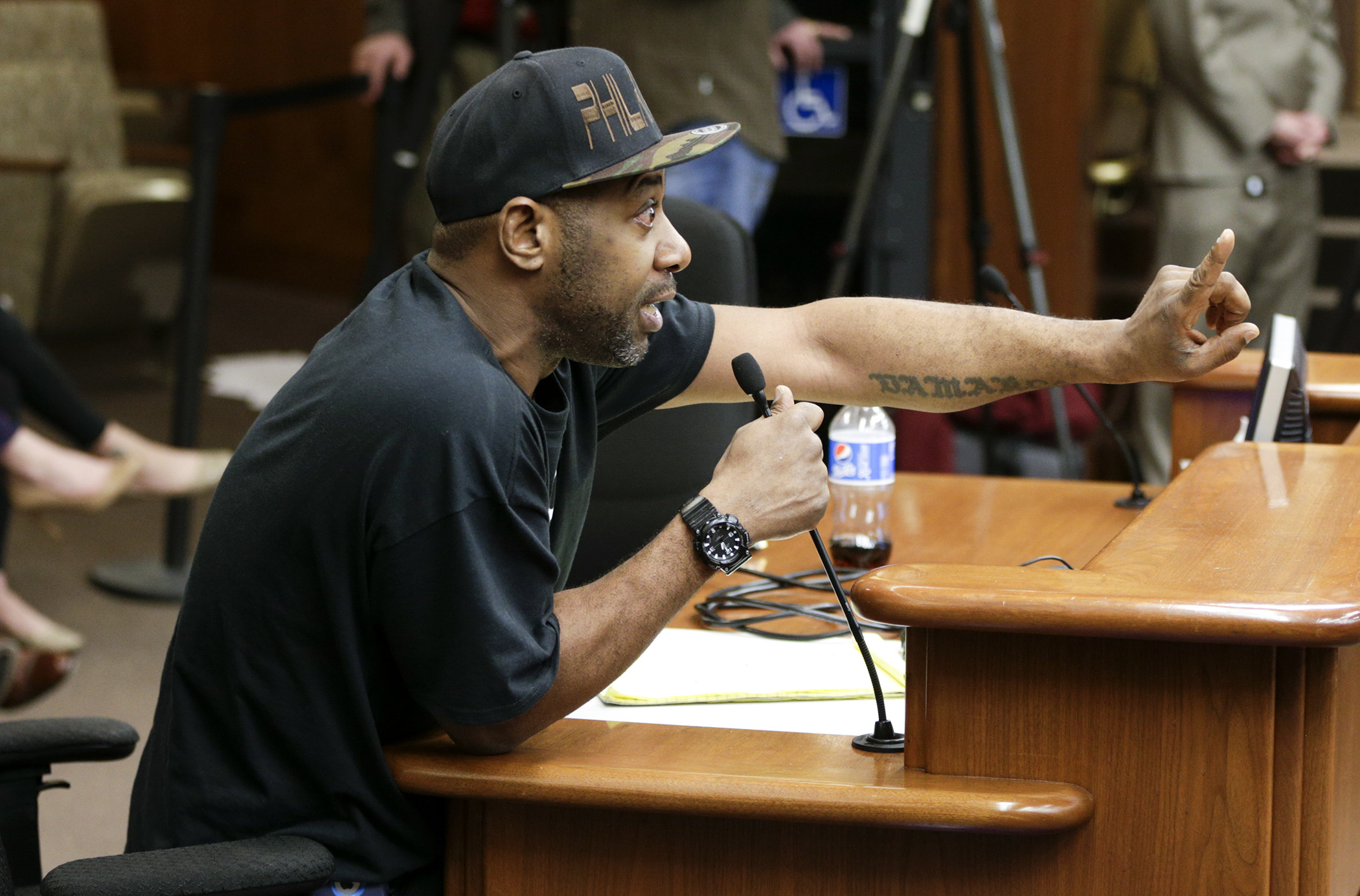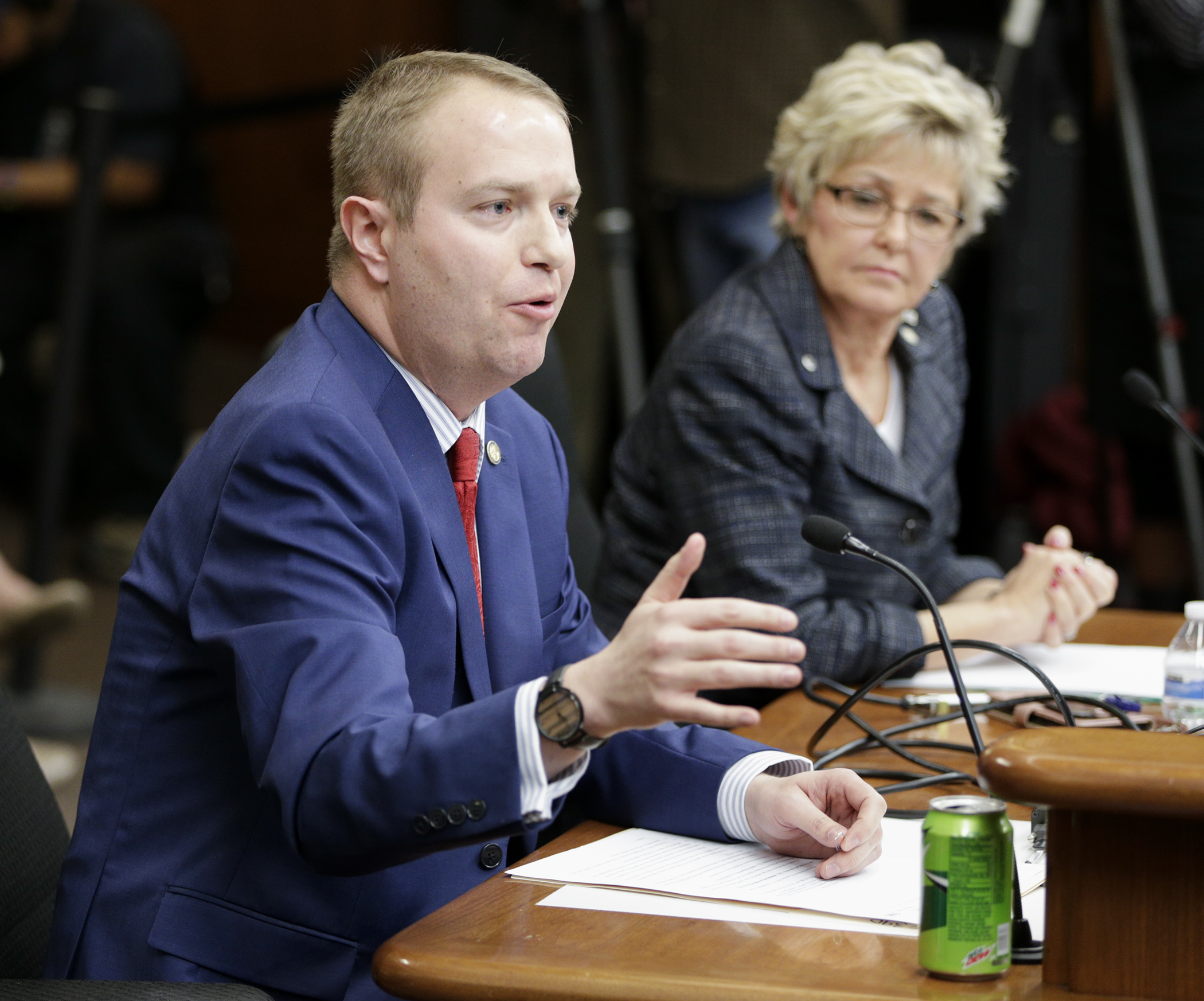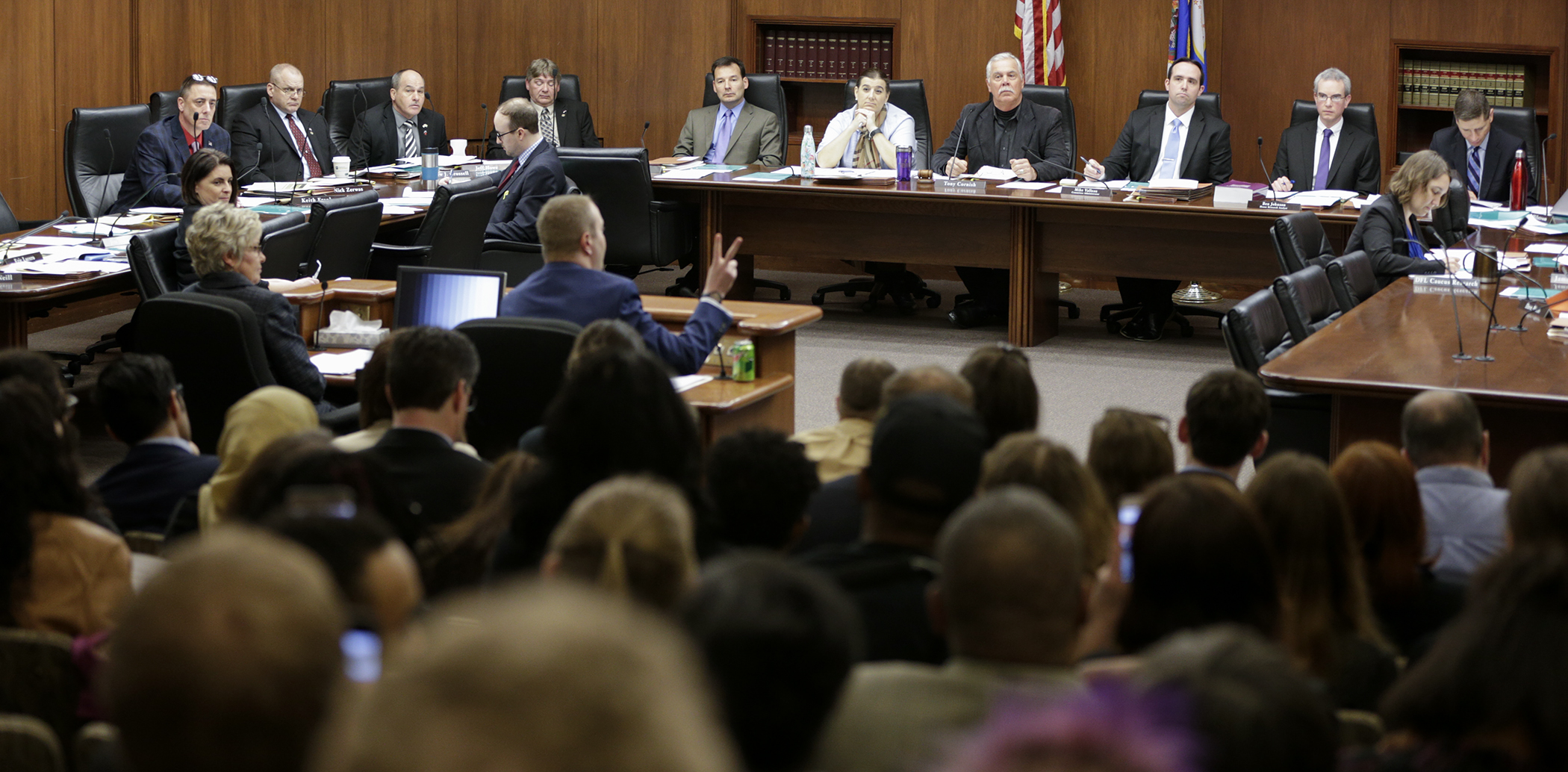Protest on a freeway? Public safety committee approves tougher penalties

Aiming to ensure legal protests is one goal of a couple bills that others view as stifling free speech and attacking the rights of minorities.
Protesters disrupted light-rail service at the Minneapolis-St. Paul International Airport in December 2015. Eight months later protesters blocked Interstate 94 in St. Paul to protest the shooting of Philando Castile, a black man killed by a police officer in Falcon Heights.
In each instance, the protest took place where it is illegal to do so.
“Some people believe incorrectly that they have a right to camp out on a freeway to impede traffic and to bring everything to a halt,” said Rep. Nick Zerwas (R-Elk River). “If you believe it’s a First Amendment right to block a freeway, you’re mistaken. That is against the law already.”
Approved Wednesday by the House Public Safety and Security Policy and Finance Committee, were a pair of bills that would increase the criminal penalty for obstructing a freeway and airport access. Each was sent to the House Floor.
Amid hollers of racism from some people in the packed hearing room, each was approved on a 10-6 party-line vote.
“Remove your white hoods,” shouted John Thompson, a member of Black Lives Matter in St. Paul. Sponsored by Zerwas, HF390 would increase the penalty from a misdemeanor to a gross misdemeanor for someone who intentionally obstructs traffic “that is entering, exiting, or on a trunk highway or that is entering or exiting an airport.” It would also add restricting passenger access to the statute regarding unlawful interference with a transit operator.
Rep. Kathy Lohmer (R-Stillwater) sponsors HF1066, which would add “on a controlled-access highway or on a public highway within airport property” to the statute that makes it a gross misdemeanor to interfere with, obstruct or render dangerous for passage, any public highway or water used by the public.
The respective companion bills, SF676, sponsored by Sen. Bill Ingebrigtsen (R-Alexandria), and SF918, sponsored by Sen. Karin Housley (R-St. Marys Point), were heard later in the day by the Senate Judiciary and Public Safety Finance and Policy Committee. The bills were essentially combined and SF676 was sent to the Senate Floor on a 7-2 vote.
“Critical access to highways are not public spaces,” Lohmer said. “You need a license to be on them, both a drivers’ license and the vehicle needs to be licensed. … A freeway would not be considered a public space.”
 Rep. Nick Zerwas discusses HF390 before the House Public Safety and Security Policy and Finance Committee Feb. 22. Rep. Kathy Lohmer, right, sponsors a similar bill, HF1066. Photo by Paul Battaglia
Rep. Nick Zerwas discusses HF390 before the House Public Safety and Security Policy and Finance Committee Feb. 22. Rep. Kathy Lohmer, right, sponsors a similar bill, HF1066. Photo by Paul Battaglia She spoke of the life-and-death situation that someone with a medical condition could face if they are unable to get immediate help.
“I can’t imagine sitting for hours on a freeway stopped and not being able to get to the hospital in a timely way with a child in a significant amount of pain and no way to move forward,” she said.
Zerwas emphasized nothing in either bill stops a legal, lawful protest nor does either have anything to do with civil penalties. He said Gov. Mark Dayton indicated support earlier this year.
“We’ve had dozens and dozens of protests over the last few months in which nobody was arrested, in which nobody marched onto a freeway, in which nobody blocked a train, in which nobody blocked access to the airport,” Zerwas said.
At a morning press conference, House Speaker Kurt Daudt (R-Crown) said the bills are not aimed at any race, gender or ethnic group, rather they are simply trying to stop unsafe behavior and keep all members of the public safe.
That was not the same sentiment shared by many in the packed hearing room.
 In a packed committee room, the House Public Safety and Security Policy and Finance Committee discusses Feb. 22 a pair of bills that aim to tougher criminal penalties for protesters who block freeways or airport access. Photo by Paul Battaglia
In a packed committee room, the House Public Safety and Security Policy and Finance Committee discusses Feb. 22 a pair of bills that aim to tougher criminal penalties for protesters who block freeways or airport access. Photo by Paul BattagliaA handful of testifiers said that by disrupting the lives of others they are better able to share their message.
“Blocking highways may not be popular, but the reality is popular tactics don’t bring about change,” said Michelle Gross, president of Communities United Against Police Brutality.
Rep. Raymond Dehn (DFL-Mpls) asked for any anecdotal evidence that increased penalties deter such illegal activity.
“It’s basic criminology, basic criminal justice studies that show there are two reasons for criminal penalty: they are to deter the activity and punish the offender,” countered Zerwas. “It’s clear that this current misdemeanor does not deter, and I do not believe the penalty is enough of a punishment for closing a freeway. … If you block a freeway, you should go to jail.”
Lohmer said she knows people who were working on Interstate 94 last July and said some protesters were taken away by authorities, but returned within an hour. Dehn said he knows of people that spent a night in jail.
In speaking against the bills, one of the lawyers who serves on the committee related the potential penalty to another crime.
“The way this would work is somebody who blocks the door to a transit vehicle … that person would get a higher punishment than someone who assaults their girlfriend or their spouse in a first incident,” said Rep. Dave Pinto (DFL-St. Paul).
Another attorney, Rep. Jamie Becker-Finn (DFL-Roseville) said the bills fail to address unfair societal issues.
“Until we address the underlying injustice, we’re going to continue to have dissent,” she said. “Instead of trying to further stifle dissent by increasing penalties, this bill is basically going to do the opposite as far as addressing those injustices.”
Rep. Matt Grossell (R-Clearbrook) served in the armed forces and is a retired after a career in law enforcement.
“To bring this to anyplace other than a matter of increasing a penalty for breaking the law, I guess I can’t see that. Everybody has their freedoms, and I agree with that 110 percent. These bills don’t interfere with people’s free speech to gather peaceably or protest. … I served to protect those rights.”
Related Articles
Search Session Daily
Advanced Search OptionsPriority Dailies
Ways and Means Committee OKs proposed $512 million supplemental budget on party-line vote
By Mike Cook Meeting more needs or fiscal irresponsibility is one way to sum up the differences among the two parties on a supplemental spending package a year after a $72 billion state budg...
Meeting more needs or fiscal irresponsibility is one way to sum up the differences among the two parties on a supplemental spending package a year after a $72 billion state budg...
Minnesota’s projected budget surplus balloons to $3.7 billion, but fiscal pressure still looms
By Rob Hubbard Just as Minnesota has experienced a warmer winter than usual, so has the state’s budget outlook warmed over the past few months.
On Thursday, Minnesota Management and Budget...
Just as Minnesota has experienced a warmer winter than usual, so has the state’s budget outlook warmed over the past few months.
On Thursday, Minnesota Management and Budget...